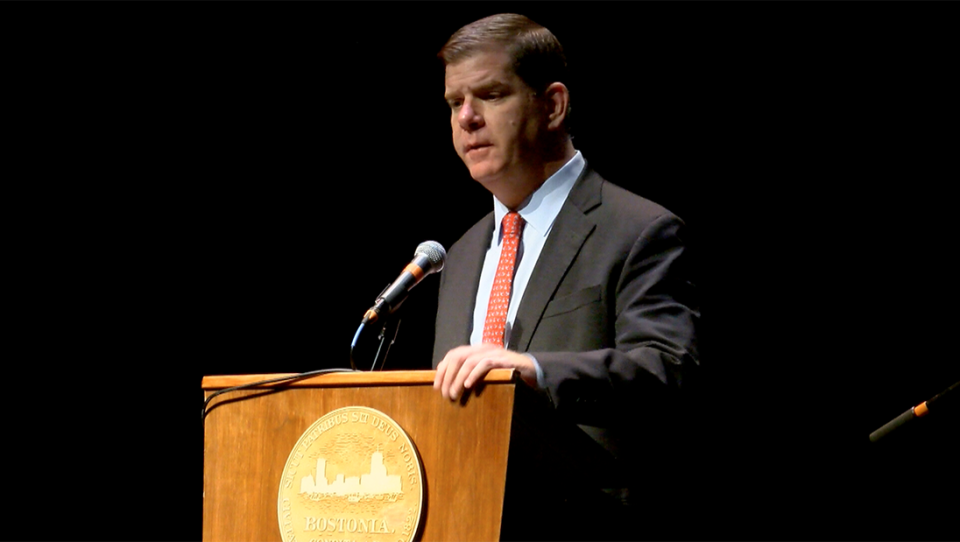Mayor Marty Walsh Friday defended his administration’s approach to planning and development. During his monthly appearance on Boston Public Radio, Walsh responded to a report released earlier this month by City Councilor Michelle Wu, in which she called for the abolition of the agency tasked with managing the city’s real estate development process.
“She’s not on the right track on this,” Walsh said. “We have increased our planning efforts in the city of Boston. We’ve increased the planning department inside the agency. We have 16 different planning processes going on in the city of Boston right now.”
In the report, Wu said she is concerned that Boston is falling behind other cities like San Francisco and Philadelphia and does not have an adequate long-term plan for city planning. Wu also said the current structure of the the Boston Planning and Development Agency (BPDA) leaves it vulnerable to corruption and caters to the interests of private developers rather than residents.
“We’re not aligning all of the resources and the goals to be able to make a difference,” Wu said in an interview with WGBH News on Oct. 1. “The way that we’re doing development now is exacerbating income inequality, is exacerbating congestion and traffic, is exacerbating our climate resiliency struggles [and] making affordability a lot more difficult.”
Walsh, however, said that his administration has been dedicated to improving the city’s master plan. When he first entered office, he said, the city was in the midst of a large population growth, and his predecessors did not create a plan robust enough to handle the rapid of expansion of areas such as the South Boston waterfront.
“Developers built buildings over there, and really what we weren’t prepared for was the growth that the city went through,” Walsh said. “If you had a planning department planning this growth, you would set in motion the housing needs, you would set in motion the transportation needs and you would set in motion the amenity needs ... and we’re doing that right now in the city.”
In 2016, Walsh sought to tackle the lack of long-term planning and community engagement in the process by re-branding the Boston Redevelopment Authority as the BPDA and increasing the agency's funding and staff. Since then, his administration has said that the city has taken great steps to improve the relationship between developers and residents, but in her report Wu said she believes city residents are still being locked out of the development process.
Walsh also characterized Wu’s report as “villainizing economic development growth,” and mentioned that property taxes fund 71 percent of the city’s budget.
“The additional property tax that we have goes into programs. If we don’t have growth in the city of Boston we can’t raise the budget for our fighting the opioid addiction by 35%. If we don’t have additional money in the budget we can’t put out the largest school budget in the history of the city of Boston,” Walsh said. “If we don’t have additional revenue coming in, we can’t be renovating parks, and libraries and community centers and police stations and fire stations. We can’t do that.”
Wu did not respond when asked for a comment about the mayor’s remarks. She told WGBH News in a previous interview that her intent in abolishing the agency is not to slow down property development, but rather to align it more closely with the needs and desires of residents.




